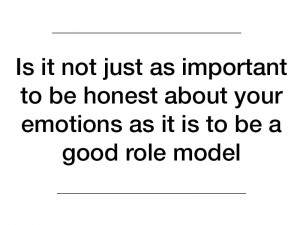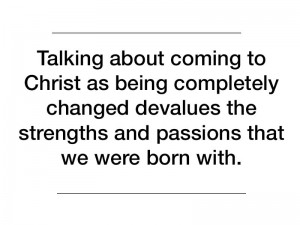 I started listening to Lorde recently. She is a sixteen-year-old musician from New Zealand who just released her first album in September. If you have not heard of her I am sure you have at least heard her hit song, “Royals”. She has a haunting voice and the hook is super catchy without becoming annoying. I like to listen to it when I run. It was the only song of hers that I had heard so far, though, so I decided to learn more about her. I stumbled across an interview in which she called out Selena Gomez, saying “I love pop music on a sonic level, but I’m a feminist and the theme of her song [“Come & Get It”] is, ‘When you’re ready, come and get it from me.’ I’m sick of women being portrayed this way.” When I first read this, I was on board. Without making a comment about the singer herself, I have long found the lyrics to “Come & Get It” to be damaging; “You ain’t gotta worry, it’s an open invitation. I’ll be sittin’ right here, real patient. All day, all night, I’ll be waitin’ standby.” This passive voice paves the way for responses like Robin Thicke’s horrendously rape-y “Blurred Lines” (a song that has been banned at five universities so far), which asserts that women are too coy to express their desire for sex, so men should go ahead and take it from them. Lorde was offended, and so was I.
I started listening to Lorde recently. She is a sixteen-year-old musician from New Zealand who just released her first album in September. If you have not heard of her I am sure you have at least heard her hit song, “Royals”. She has a haunting voice and the hook is super catchy without becoming annoying. I like to listen to it when I run. It was the only song of hers that I had heard so far, though, so I decided to learn more about her. I stumbled across an interview in which she called out Selena Gomez, saying “I love pop music on a sonic level, but I’m a feminist and the theme of her song [“Come & Get It”] is, ‘When you’re ready, come and get it from me.’ I’m sick of women being portrayed this way.” When I first read this, I was on board. Without making a comment about the singer herself, I have long found the lyrics to “Come & Get It” to be damaging; “You ain’t gotta worry, it’s an open invitation. I’ll be sittin’ right here, real patient. All day, all night, I’ll be waitin’ standby.” This passive voice paves the way for responses like Robin Thicke’s horrendously rape-y “Blurred Lines” (a song that has been banned at five universities so far), which asserts that women are too coy to express their desire for sex, so men should go ahead and take it from them. Lorde was offended, and so was I.
Then, however, Lorde also mentioned Lana Del Rey, saying “She’s great, but … it’s so unhealthy for young girls to be listening to, you know: ‘I’m nothing without you’. This sort of shirt-tugging, desperate, don’t leave me stuff. That’s not a good thing for young girls, even young people, to hear.” I was a bit taken aback. While I like to think I agree with Lorde on an intellectual level, personally, I have always strongly related to Lana’s lyrics, so much so that I would never think to criticize her message. To me, her lyrics seem much more specific and thought-out as opposed to Selena’s general “come and get it” call to the world. After all, on an individual level, people really do feel intense longing and desperation. Are artists like Lana Del Rey supposed to sacrifice their candor and sincerity for the sake of idealism? Is it not just as important to be honest about your emotions as it is to be a good role model?
Oscar Wilde wrote, “Life imitates art far more than art imitates life,” and I am not entirely sure I agree with him. To me, it seems more like a cycle. Artists pick up on barely realized themes within culture, or invent idealized ones, society notices trends within art and embraces them, artists perpetuate the trends, society perpetuates the trends, and the cycle begins again. Perhaps I relate so strongly to Lana’s lyrics because I have grown up listening to these common themes in pop music my whole life, and the mentality has become ingrained in me. What would it look like if musicians began addressing issues of love and sex in a much healthier way? Several years down the road, would we relate just as strongly to those lyrics, having been slowly changing our viewpoints and our actions over time until we were all engaged in relatively healthier relationships?
Where is the line between being honest and being a good example—and how can we find a foothold in the relentless life-imitates-art, art-imitates-life cycle? After all, Lorde was right—these commonplace “I need a man” pop lyrics preserve negative gender stereotypes and continually affect the way young men and women see each other. But Lorde also qualified her opinion by adding, “People got the impression I thought writing about love was shameful. I don’t! I just haven’t found a way of doing it which is powerful and innovative.” I don’t think we need to throw out emotional honesty and vulnerability altogether. I think we can be honest about that fact that our dependence on romantic relationships is unhealthy. I think we can be honest about the fact that we need to find more constructive ways to communicate our desires and our boundaries. We can celebrate our independence without denying our occasional loneliness. Pop music has an incredible influence, and that does not have to be a bad thing.

